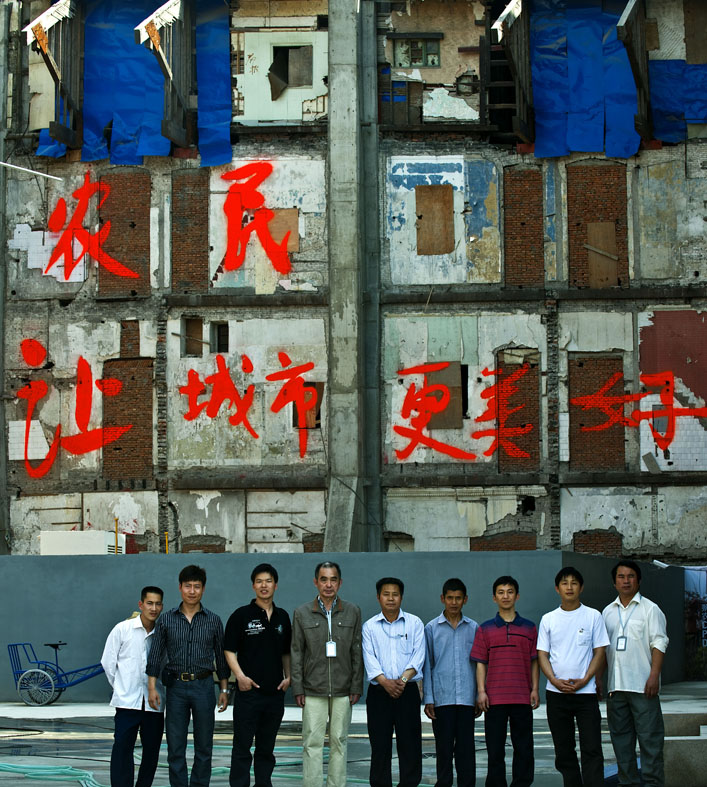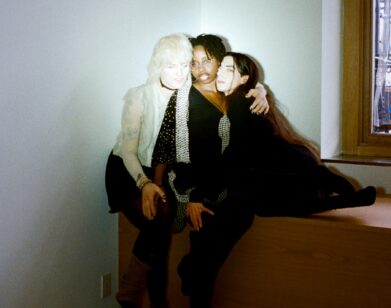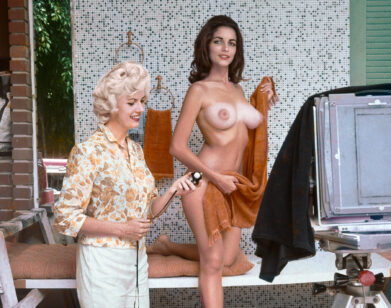Cai Guo Qiang: More Than Fireworks

PEASANTS—MAKING A BETTER CITY, A BETTER LIFE, 2010.
PHOTO BY LIN YI. COURTESY CAI STUDIO.
Addressing “peasant” culture and creativity, the exhibition “Cai Guo-Qiang: Peasant Da Vincis,” organized and curated by the artist at the Rockbund Art Museum in China, raises contemporary questions in the world’s most populous nation. The first question regards the “visibility” of the portion of the population that, due to great sacrifice, has allowed for unparalleled global economic and social development. Here’s an excerpt from the full interview, in which the artist tells internationally renowned curator Cermano Celant about what video games can’t give the Chinese people: sex.
GERMANO CELANT: Much contemporary art, from Panamarenko to Tom Sachs, looks at the imitation of the technological, whether in the form of a dirigible or a Star Wars space ship, and immerses itself in concrete reality of contemporary existence. It relies on a fictitious cinematographic and spectacular aspect to interrogate the potentially repressive and constrictive character of the culture. By proposing a return to the simplicity of myths about flight, is it your intention to offer a critique of the artificiality of Pixar or Marvel’s imagination, something that creates narrative not with flesh and blood individuality, but with 3D figures, made up of pixels?
CAI GUO QIANG: Computer animation is one way to liberate people from their circumstantial gravity, and it is one way to give them mental freedom. The virtual world is an unknown world, and humans like to explore unknown worlds. But the freedom and wonderment of infinite possibilities in virtual reality can never replace the sensuality of making love, for instance.






